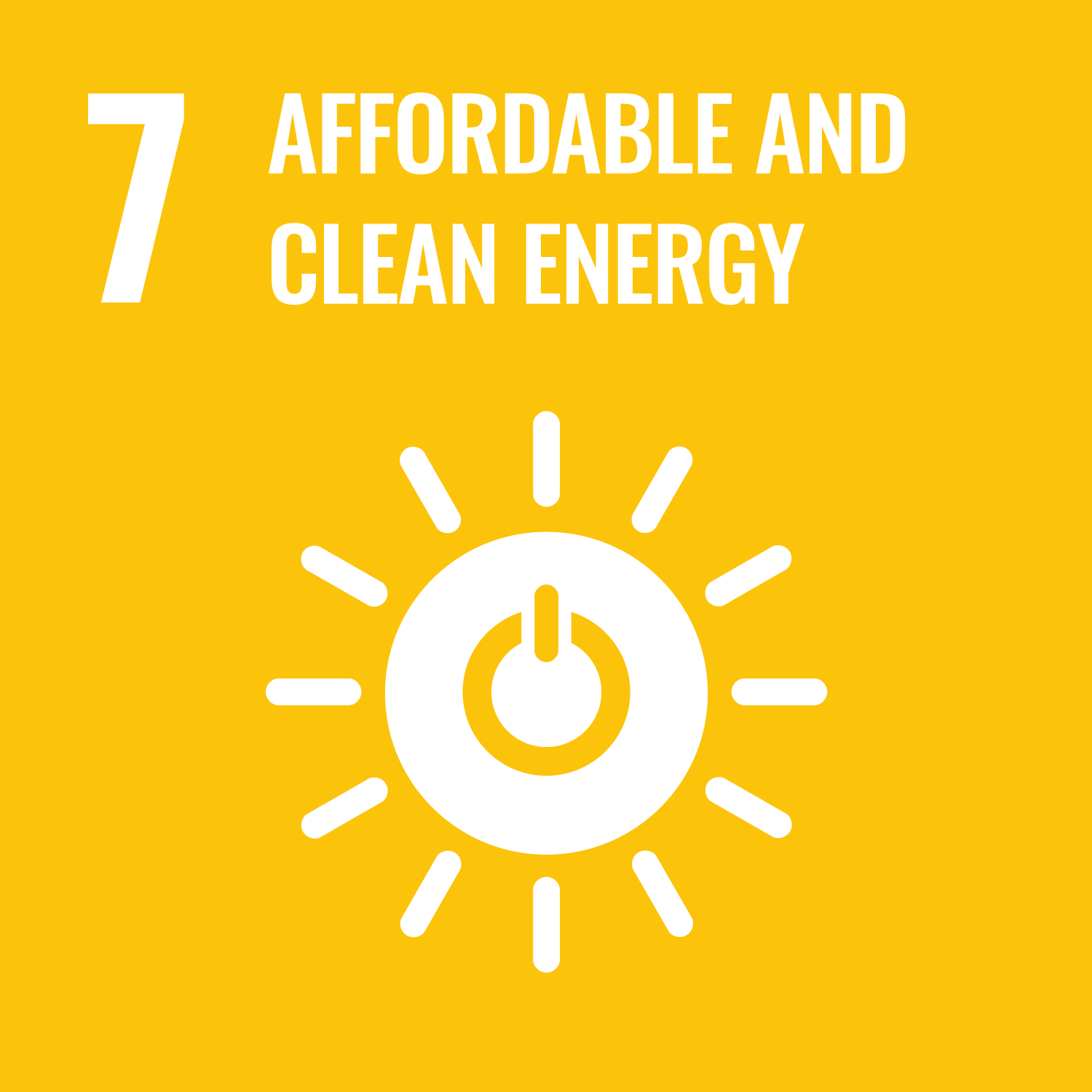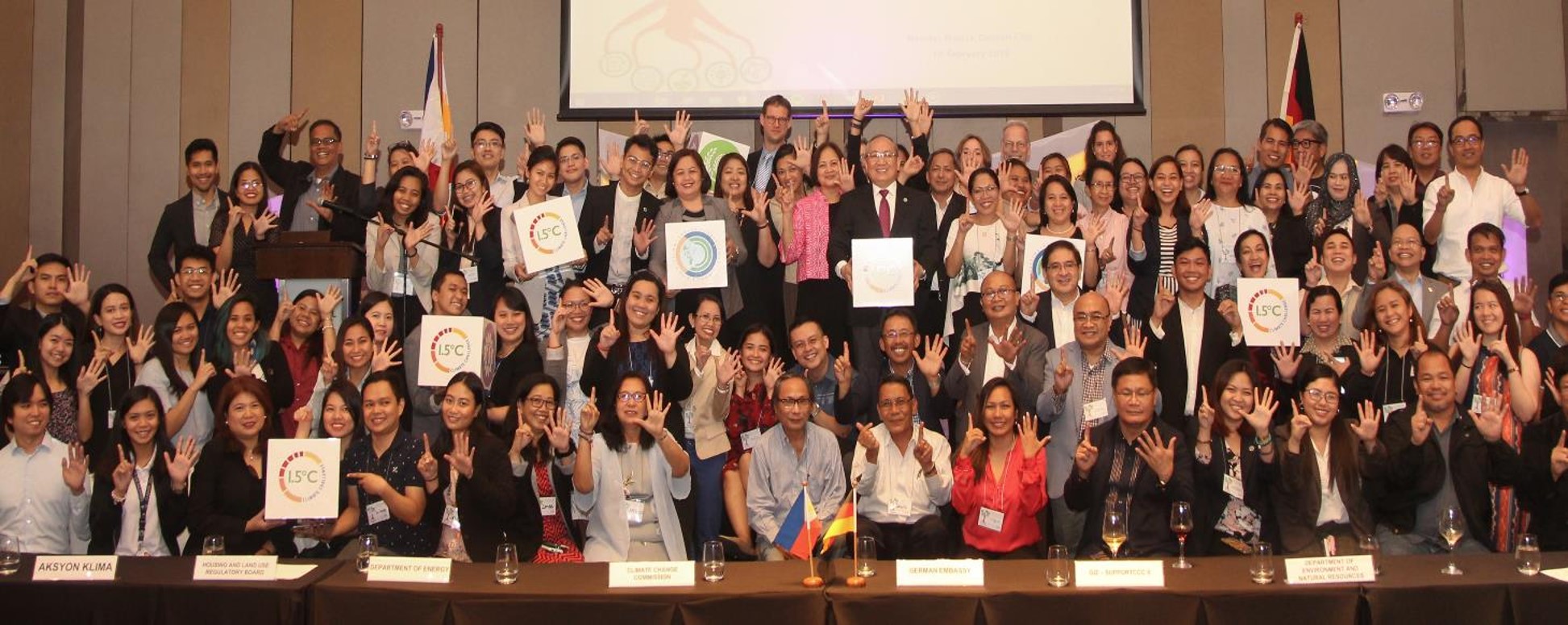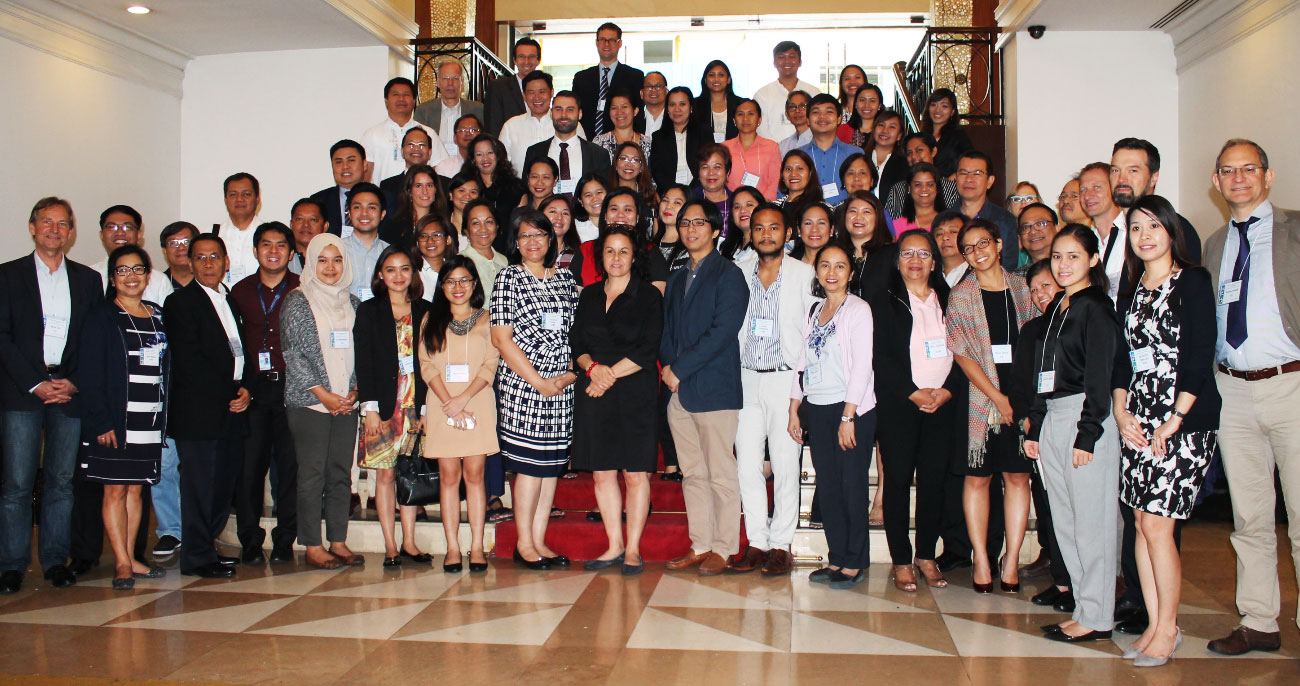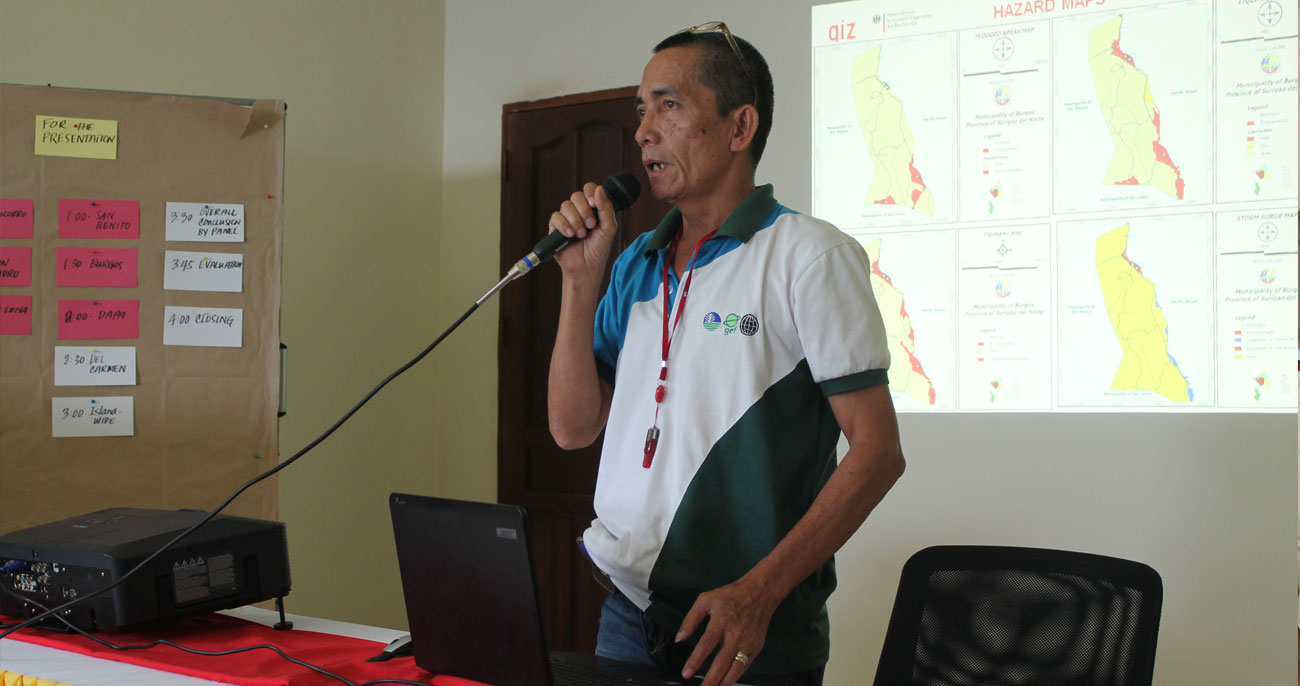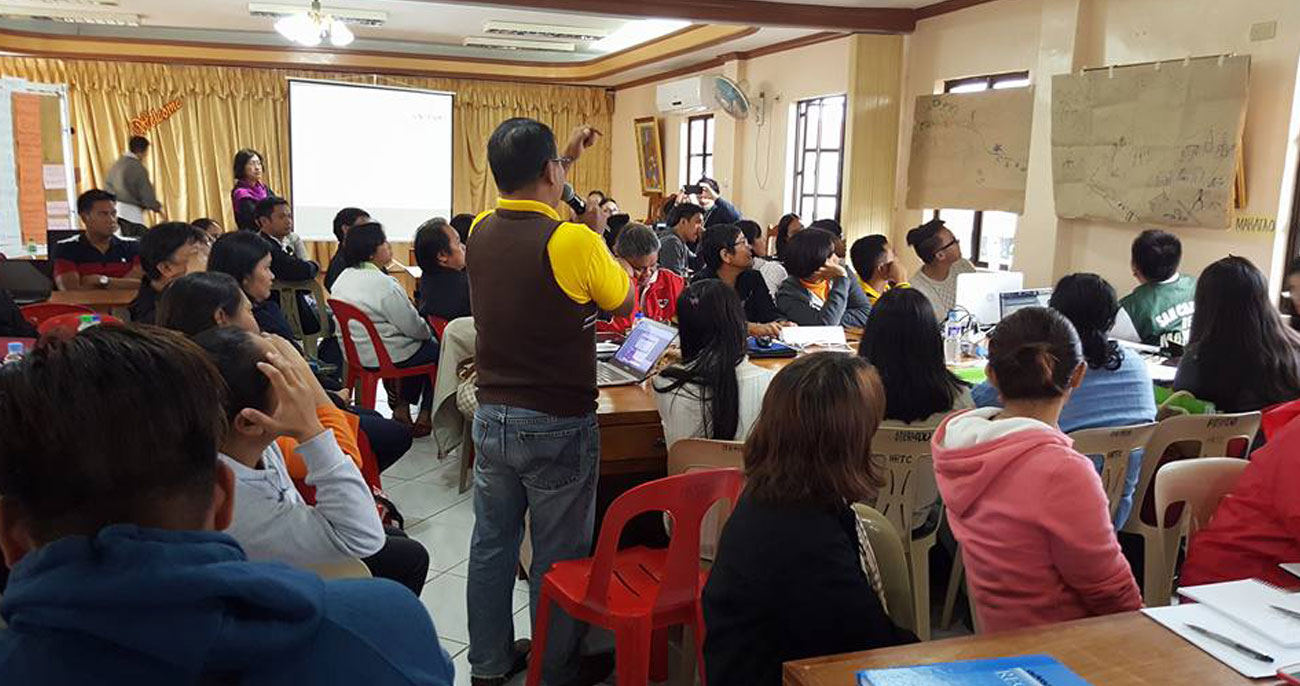Support to the Climate Change Commission II
OBJECTIVES
The Climate Change Commission and other key stakeholders in the Philippines ensure the coherent implementation of climate change policy at national and sub-national levels and contribute to the further development of the international climate change regime.
DESCRIPTION
The project builds on the experiences and results of an earlier project, ‘Support to the Climate Change Commission in implementing the National Climate Change Action Plan (NCCAP)’, also implemented by GIZ until August 2015. SupportCCCII is providing technical advisory in implementing national climate change policies, in the context of the Philippines’ international commitments. From 2016 to 2019, the project has contributed to the updating and enhancement of the NCCAP and its monitoring system, and supported the Philippines’ presidency of the Climate Vulnerable Forum (CVF) in 2015-2016 with UNDP. The project’s work on renewable energy and energy planning supported technical studies and policy dialogues as part of the review to enhance the energy planning regime in the Philippines. At the sub-national level, the project supported over 164 local government units in developing their climate-adaptive land use and development plans. It also supported the operationalization of the People’s Survival Fund (PSF)—the national adaptation fund, and capacity building measures to access PSF. As the IKI interface project, the project has organized networking workshops and strategic dialogues with other IKI implementing agencies and government partners.
SupportCCC II is now implementing an extension phase until October 2022. While the project has wrapped-up its support on renewable energy and land-use planning, the project will continue its advisory on climate policy, focusing on climate risk assessments, and supporting the transparency initiatives of the country in monitoring climate action and tracking climate finance. SupportCCC II also continues to serve as the interface for IKI projects in the Philippines.
APPROACH/FIELD OF INTERVENTION
- Advisory on climate risk assessment to support the National Climate Risk Management Framework (NCRMF) which aims to guide local government in their own climate risk assessment and decision making
- Development of guidelines on the alignment of the NCCAP’s Results-Based Monitoring and Evaluation System (RBMES) with the Paris Agreement’s transparency requirements
- Support analytical studies and systems development to monitor and track public climate finance, through the Climate Change Expenditure Tracking (CCET) system, and international climate finance
- Facilitate learning exchange and networking workshops for the BMU IKI projects in the context of development partner coordination
TARGETED BENEFICIARIES
- Staff of the partner government agencies, both at the national and local government level
- Representatives from the academe, civil society organizations, and private sector
- Ultimate beneficiaries are the Filipino people affected by climate change
HIGHLIGHT ACTIVITIES
Project achievements since 2015:
- Contributed to the updating and enhancement of the NCCAP and its Results-Based Monitoring System (RBMES), including the development of a guidance document for the NCCAP updating process covering its thematic priorities.
- Developed a concept note for the “Enhanced Climate Change Action Plan as the National Strategy for Climate Empowerment.”
- Supported the Philippine’s Presidency of the Climate Vulnerable Forum (CVF) in January 2015 until mid-2016.
- Produced two reports on the review of the Philippine NDC Roadmap and the National Climate Change Mitigation Framework and Strategy (NCCFMS) to ensure that the mitigation potential of renewable energy is incorporated.
- Supported 164 local government units in developing and implementing climate-adaptive land use and development plans.
- Contributed to the capacity enhancement of the Secretariat of the People’s Survival Fund (PSF), which was able to approve six climate change adaptation and disaster risk reduction projects in November 2018.
- Developed a strategy paper on risk transfer mechanism, focusing on how climate insurance can potentially be mainstreamed in climate change planning.
- Conducted a review to enhance the energy planning regime in the Philippines.
- Supported the development of an inception report for the National Energy Policy Review that identified 10 key issues to support the process of moving to a low-emission energy sector.
- Developed a tool and template for MRV of GHG inventory and mitigation actions in the Philippine energy sector.
- Organized study visits and supported participation of Philippine decision- makers to international events and knowledge exchanges.
- Facilitated regular knowledge exchange and networking among all IKI projects in the country, including the conduct of IKI Networking Workshops and development of quarterly newsletter.
PUBLICATIONS
- Water and Climate Change
- Solid Waste and Climate Change
- Power and Climate Change
- Gender and Climate Change
- Coastal Marine and Fisheries and Climate Change
- Biodiversity and Climate Change
- Agriculture and Climate Change
- Vulnerable but not incapable of action The Philippine Presidency of the Climate Vulnerable Forum
- Tracking Climate Actions in the Philippines The National Climate Change Action Plan Results-based M&E System
- Towards enhanced tracking and reporting of mitigation actions and co-benefits in the energy sector
- The Philippine Blue Carbon Initiative
- Sustainable Energy, Sustainable Future
- Support Project for the Preparation of Intended Nationally Determined Contributions (INDCs)
- Strategic mainstreaming of Ecosystem-based Adaptation (EbA) into planning and decision making processes
- Information Matters: Capacity Building for Enhanced Reporting and Facilitation of International Mutual through Peer-to-Peer Exchange Learning
- Gender mainstreaming for climate adaptive planning The case of the National Climate Change Action Plan (NCCAP)
SUCCESS STORIES
“The concept of climate justice enshrined in the Paris Agreement is based on the principle of leaving no one behind—a principle exemplified by the PhilippineGerman cooperation on climate action through the Support to the Philippines in Shaping and Implementing the International Climate Regime (SupportCCC II) project. “ – Secretary Emmanuel De Guzman, Climate Change Commission, February 2019.
Since SupportCCC II’s inception in 2015, it had provided extensive technical assistance to the Department of Energy (DOE). One of the project’s focus area is on renewable energy (RE) innovations, where it has helped the Philippines learn the management of increasing amounts of variable RE (vRE) and adapt power planning with the mega trends happening globally. It had also facilitated capacity building for energy stakeholders across the country, including grid operators and the distribution utilities for the grid integration of vRE.
A high-level delegation visit to Germany was arranged in June 2017 where Philippine decision makers learned about Germany’s Energiewende. Key Philippine officials had personally seen the positive outcome of utilities’ learning to manage increasing amounts of RE over time, as evidenced by the 40 gigawatts (GW) of solar and 40 GW of wind power currently installed in the German system having only 11 minutes of annual down time.
In addition, relevant technical and policy studies were conducted which included an assessment of the power planning process, a policy review of the Feed-in-Tariff and net-metering for RE, a cost-benefit analysis of the power sector using the RE country diagnostic tool, and an analysis of the Negros solar situation.
“For three consecutive years, the Philippines ranked first among 125 countries in terms of energy environmental sustainability. This couldn’t have been achieved without the strong collaboration among the different Philippine government agencies, as well as the technical and funding support from our international partners, like GIZ.
GIZ played an instrumental role in enriching renewable energy (RE) deployment and utilization in the Philippines.” – Secretary Alfonso G. Cusi, Department of Energy, February 2019.
COUNTRY
Philippines
DURATION
20 Sep 2015 - 31 Dec 2022
Commission Agency
BMUV
SDG
